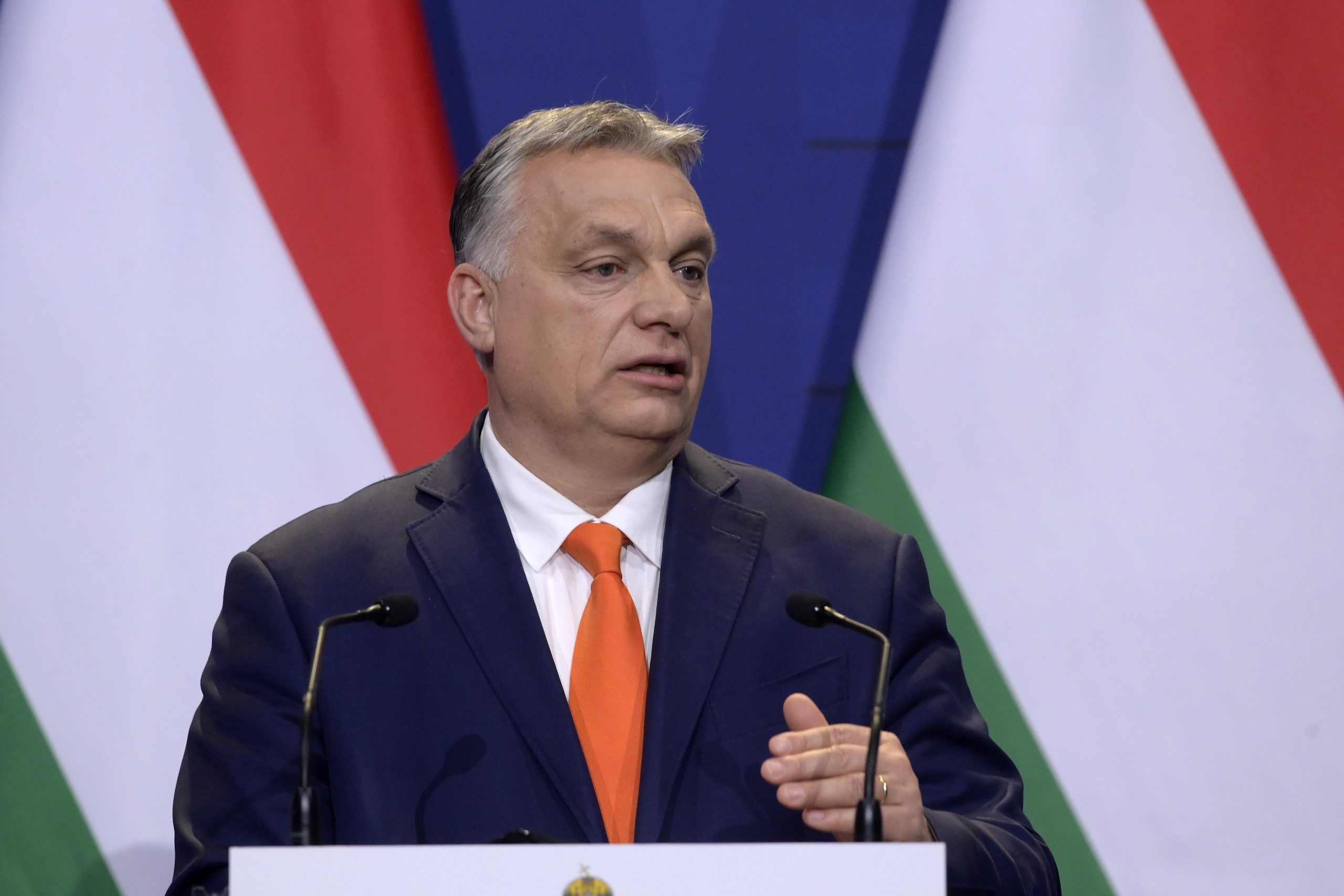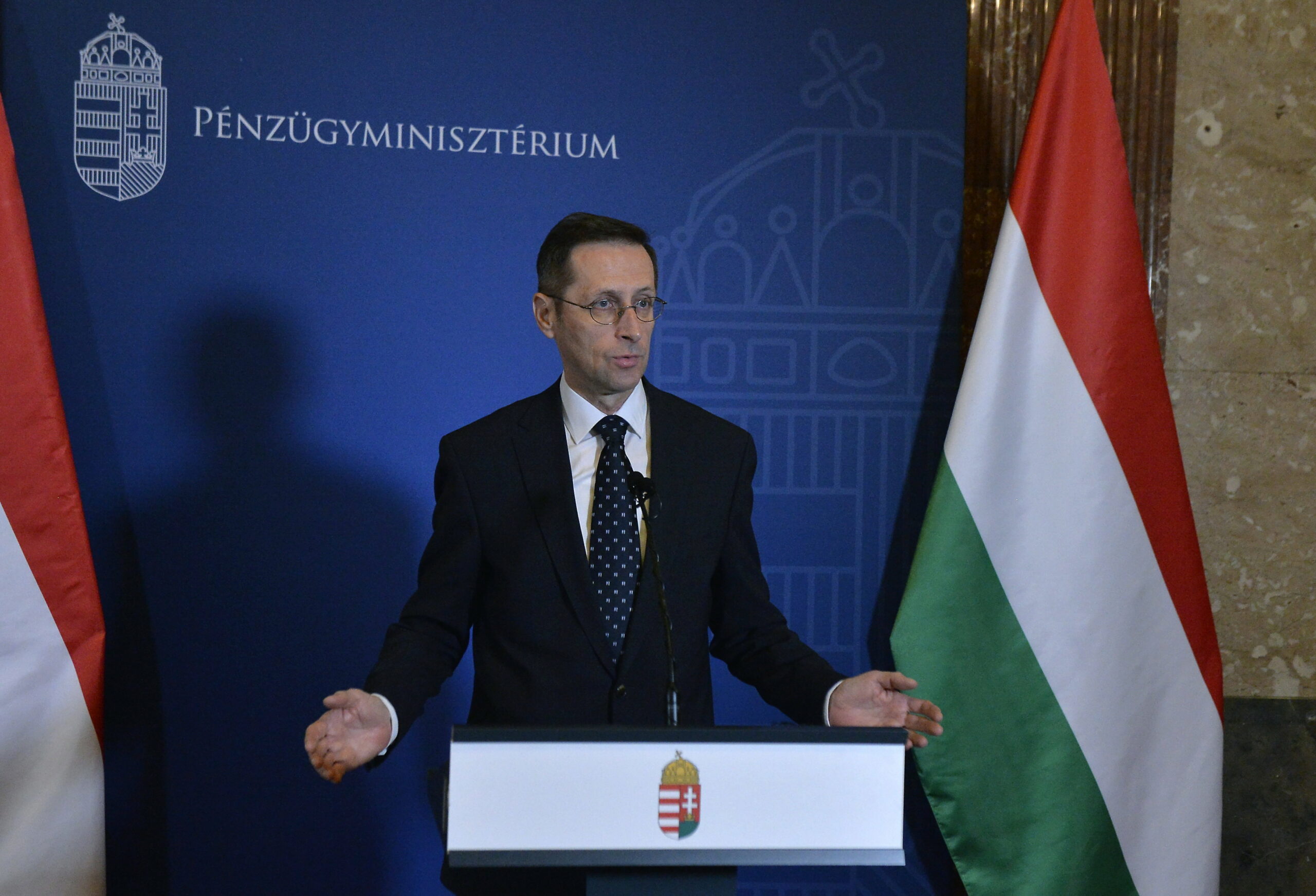
The announcements include wage hikes in certain sectors, income-tax rebates for families, waiving income tax for workers under the age of 25, and certain home renovation grants.Continue reading

The Orbán government accumulated a HUF 1,585 bn (EUR 4.3 bn) deficit in the month of February, Hungary’s biggest February, and second-biggest monthly deficit ever. This is equivalent to nearly 3% of the whole yearly GDP and also almost half of the deficit previously planned for the whole 2022 year, leftist daily Népszava reports. With a small surplus in January, the two-month overall balance is slightly better with the year-to-date deficit accumulation at ‘only’ HUF 1,433 billion. However, analysts believe that to tackle the problem, a sharp tightening in fiscal and monetary policy is absolutely necessary after the parliamentary elections.
The Hungarian budget posted a HUF 1,585bn (EUR 4.3 bn) deficit in February, which is the second-worst monthly figure and worst February figure ever in Hungary. Several drivers are behind the substandard numbers. One important factor is the Orbán government’s generous handouts before the parliamentary elections.
This month, families raising children received their personal income tax paid in 2021, pensioners received a 13-month pension, and those employed by the armed forces and law enforcement agencies got a six-month bonus payment. Additionally, the government has also decided on significant tax cuts in January. As a result, people under the age of 25 are receiving a full PIT exemption, while the payroll tax has been reduced.
In addition, the financing of the low, state-regulated energy prices of Hungary – a cornerstone of the government’s election campaign – require HUF 1,000-1,500 bn alone. (EUR 2.72 – 4.07 bn)
The government had already announced that they wanted to achieve a deficit of 4.9% instead of the planned 5.9%: this would mean an additional HUF 500 billion in spending and deficit cuts.
However, at the end of February, the war broke out, leading to several new, previously unexpected sources of expense for Hungary.
Refugee-related, economic and defense spending has soared by hundreds of billions of forints.
As a significant share of the above-mentioned spending is not covered by the budget, an adjustment of up to 2-3 thousand billion forints (EUR 5.43 – 8.15 bn) may be necessary after the elections, according to Népszava.
This explains why Finance Minister Mihály Varga said last week that after the elections – if the Orbán government remains in power – a readjustment of the budget will be needed due to the scale of the budget deficit.
Regardless of who wins the upcoming elections on April 3rd, however, there will no choice but to cut budget spending and increase revenues, Népszava underscored in its article.
Hungary will have to say goodbye to the previously expected GDP growth of around 5 percent while inflation may jump to 9 percent, according to the latest report of the GKI Economic Research Co.
Analysts at the leftist economic think tank believe that although Hungarian companies barely perceive the weakening of the economy, the overall perception of the Hungarian economy has become “dramatically” more pessimistic in every sector.
At the beginning of the year, the GKI expected a GDP growth of 4.5-5 percent for 2022, a figure that is now significantly reduced to 2.5-3 percent in the latest report. Inflation is predicted to almost double, rising from 5 to 9 percent.
The GKI forecast states that the war launched by Russia against Ukraine will have a long-lasting effect on Hungary.
The country’s policy, which according to GKI, can be characterized by opening up to the East and being anti-Brussels, has reached a dead end, and its room to maneuver and potential for blackmail has been greatly reduced. The one-sided Russian orientation of Hungarian energy policy has become untenable, the forecast notes.
Another important effect of the war is the pending rule of law procedure against Hungary and Poland, and when Hungary can get the EU funds currently withheld by Brussels.
The analysis says that it is important to keep the growth momentum going, but Hungarian economic policy is very ill-equipped to deal with another crisis.
The general government deficit is huge, attempts to curb inflation are failing and even causing supply disruptions, and the utility costs artificially kept low by the government are becoming untenable as energy prices plunge. To tackle all these problems, EU money is needed, but also “a sharp tightening” in fiscal and monetary policy in the course of the year.
In reaction to Finance Minister Mihály Varga’s comments regarding the necessary readjustment of the budget after the elections, Péter Márki-Zay wrote an open letter to Prime Minister Viktor Orbán.
The PM candidate of the opposition alliance asked Hungary’s PM how governing Fidesz would start the austerity measures, whether they would abolish family tax benefits, raise VAT, or impose special taxes.
In his letter, Márki-Zay says: “If Fidesz remains in power, we can be sure of severe austerity measures. And if we change government and get rid of Viktor Orbán, we can bring home the HUF 1.5 million in EU funds that Hungarians are entitled to,” which is one of the campaign messages of the opposition alliance.
In the featured photo: Finance Minister Mihály Varga. Photo by Lajos Soós/MTI